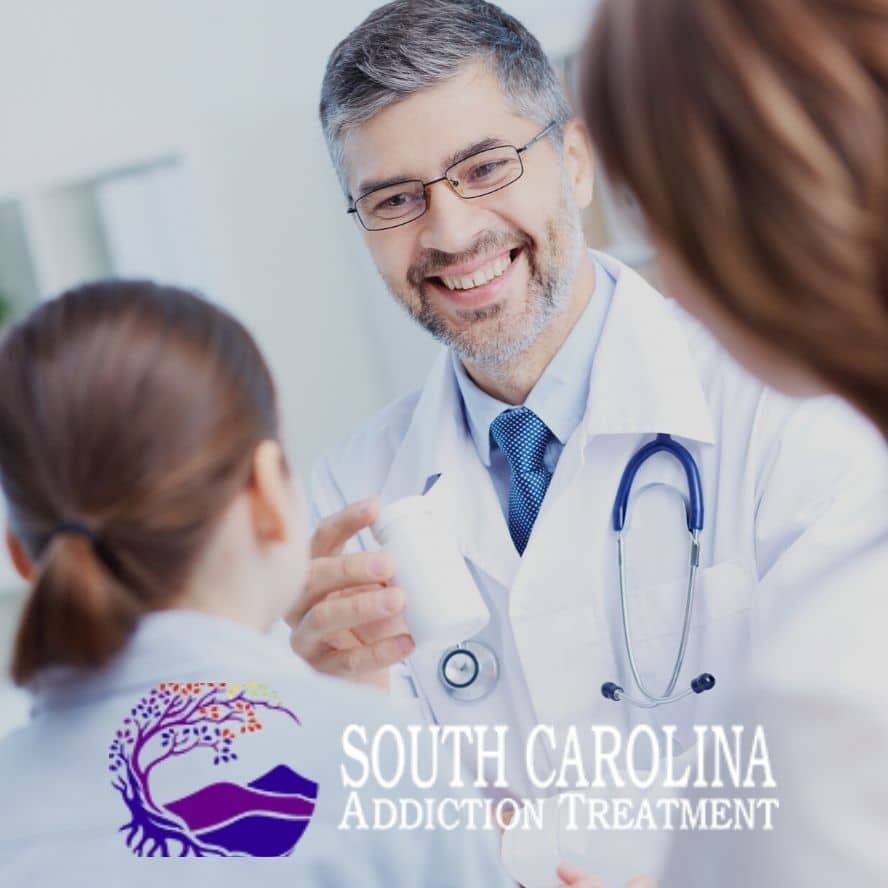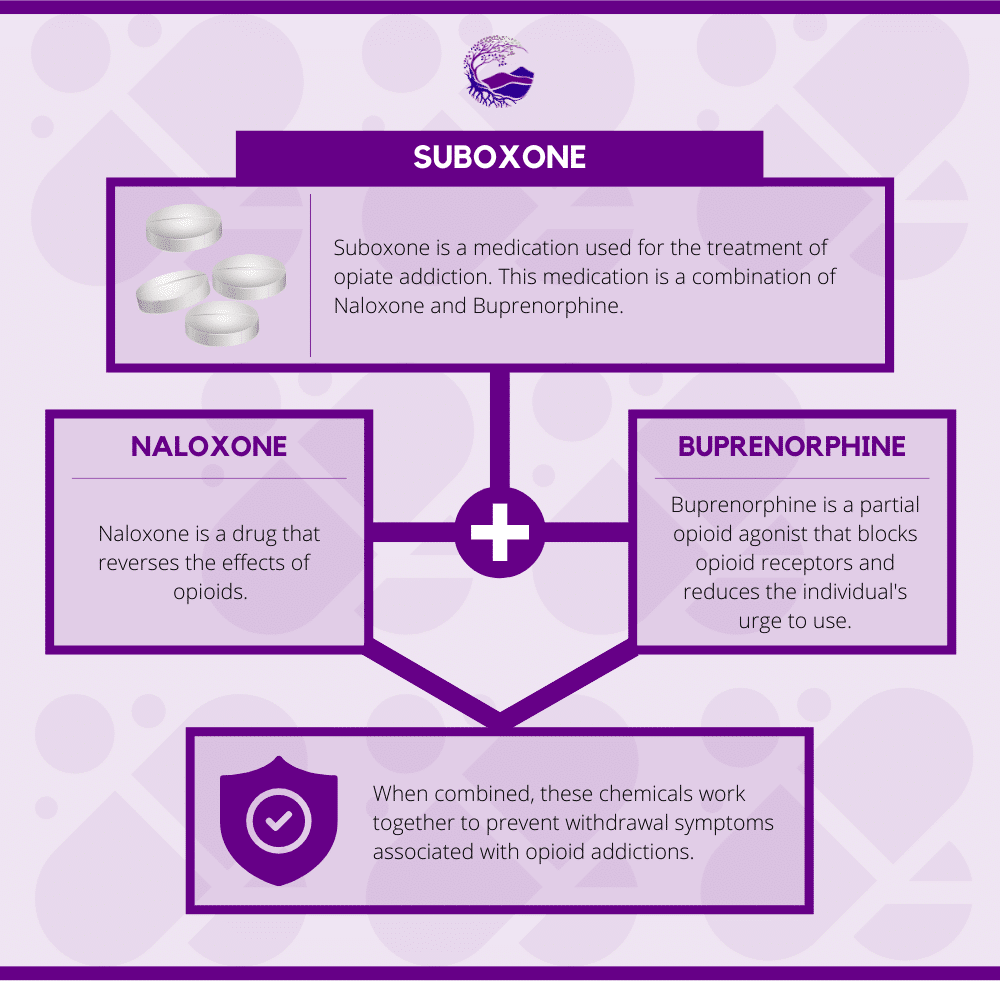A Guide to Suboxone Treatment in South Carolina

Medically Verified: 2/1/24
Medical Reviewer
Chief Editor

All of the information on this page has been reviewed and verified by a certified addiction professional.
Millions of people in the United States receive a prescription for opioid pain relievers after surgery, dental procedures, or for the treatment of chronic pain. While opioid pain relievers can be used safely as prescribed, they produce a high or euphoria that can sometimes prompt people to take more of the medication than prescribed. Other people may use opioids recreationally or to self-medicate and quickly find themselves physically dependent on the drugs. Suboxone treatment in South Carolina can help individuals who are addicted to opioids live clean and sober lives.
Addiction to any substance can wreak havoc on a person’s life. People living with addiction often suffer severe damage to their physical and mental health, lose important relationships, or have devastating legal or financial difficulties. It is crucial that anyone who struggles with addiction gets the care and treatment they need to overcome it.
Most of the time, substance abuse treatment, including treatment for opioid addiction, involves treatment for both the physical and emotional aspects of addiction. People may participate in mental health therapy, education, and group support to get the emotional regulation skills they need to overcome addiction. They may also receive medical care, including medications.
Medications can help them taper off of their drugs slowly and safely and keep them more comfortable during the detox process. One common drug used during addiction treatment is Suboxone, which is a combination of buprenorphine and naloxone. When used under the supervision of a medical professional, it can help people safely withdraw from opioids and stay more comfortable during the withdrawal period.
Signs of Addiction
It is important to understand the signs of addiction so that you can identify a problem before it consumes your life. Many people have ideas about what addiction looks like from popular media, but movies and TV usually only show addiction at its very worst stage. In reality, people often go through stages of addiction. Realizing that you need help and starting treatment as soon as possible gives you the best chance at a full recovery and a healthy future. Some common signs of addiction include:
- Thinking about the substance a lot
- Spending a lot of time getting, using, or recovering from using the substance
- Taking more of the substance than is recommended
- Needing more of the substance to get the same effect
- Falling behind at work, school, or at home
- Isolating
- Changes in mood, sleep, or appetite
- Dishonest or illegal behavior to cover up or fuel the addiction
- Having withdrawal symptoms if you stop or cut back on using the substance
- Using the substance despite having negative physical, emotional, or social consequences
It is important to pay attention to changes in behavior and be aware of negative consequences that don’t seem to affect your substance use. These are signs that you may be developing a physical or emotional dependence on the substance and may need treatment to stop using it. If you or someone you know is struggling with opioid addiction, Suboxone treatment in South Carolina may be able to help.
What is Suboxone?
Suboxone is a prescription medication that contains buprenorphine and naloxone. Buprenorphine is a partial opioid agonist that binds to opioid receptors in the brain. It activates these receptors and tricks them into thinking that opioids are in the system. This can reduce withdrawal symptoms and eliminate drug cravings.
Since buprenorphine is an opioid, it does have the potential for abuse. Naloxone is included in the medication because it blocks the high produced by opioids. As a result, naloxone helps avoid abuse of Suboxone.[1]
Suboxone comes in the form of a sublingual film that is taken once per day orally and left to dissolve in the mouth. By reducing withdrawal symptoms and cravings for opioids, Suboxone can play a pivotal role in the recovery process. Suboxone is most effective when combined with a comprehensive treatment program involving individualized counseling and behavioral therapy.

What to Expect in Suboxone Treatment in South Carolina
There are stages to all addiction treatment programs, including Suboxone treatment. Generally, you will go through three stages while in rehab in South Carolina.
Evaluation
First, you will go through an evaluation that will help your treatment team decide the best course of treatment for your unique needs. This generally consists of a medical and mental health exam and questions about your history of addiction and treatment. A doctor will help decide whether or not Suboxone is right for you.
Detox
You will go through detox in a supervised setting. This allows you to receive medications that can help you go through withdrawal as comfortably and safely as possible, and receive support while cravings are likely to be strong. You may begin taking Suboxone 12-24 hours after your last dose of opioids. This will help reduce your opioid withdrawal symptoms and make detox much easier.
Treatment
After a complete detox, you will participate in a specially designed treatment program. This will include medications like Suboxone to keep you comfortable and allow your body to adapt to the absence of the drugs you were taking, education, and therapy. Most programs use both individual and group therapy, and some offer holistic treatments and family therapy.
The amount of time you spend in treatment will depend on the severity and length of your addiction and the substances you were using. Some people develop an addiction to Suboxone while using it during detox or addiction treatment. While people who develop an addiction to Suboxone do need to manage their withdrawal from it, the symptoms of Suboxone withdrawal are generally not as severe as the ones people experience when detoxing from opioids.
The amount of time it takes for someone to detox from Suboxone varies from person to person, and people may experience a range of symptoms that are sometimes similar–but less intense–than opioid withdrawal. It is important to understand that if you need to reduce or stop using Suboxone, you must do so only under careful medical guidance.
When you are deemed ready to stop taking Suboxone, an addiction treatment specialist will help you taper off of the drug safely.
Benefits of Medication-Assisted Treatment (MAT) With Suboxone
Addiction is a whole-person condition. It affects the way people think and behave, impacts their ability to live full, healthy lives, and keeps people from developing and maintaining healthy relationships. Addiction treatment must reflect this and focus on treating each person as a whole, individual being with unique needs.
Medication-assisted treatment (MAT) is an effective, highly adaptable form of addiction treatment. Research shows that MAT with Suboxone is not only effective in helping people detox from drugs safely, but it also prevents overdose and supports lifelong recovery from addiction.[2]
In an MAT program in South Carolina, people receive medical care, medications–including Suboxone–and mental health and behavioral counseling. The goal of this “whole-person” approach to treatment is to allow the body to detox and heal while giving people the coping strategies they need to live life without abusing drugs. Medications like Suboxone allow people to experience a more gentle, comfortable withdrawal from opioids or other substances. This not only ensures that they have a safe withdrawal but also allows the person to have a complete detox. Without using medications to help people stay comfortable, many people have an early relapse.
Start Suboxone Treatment in South Carolina Today
If you or someone you love require treatment for opioid addiction, reach out to the staff at South Carolina Addiction Treatment. Our custom-tailed treatment programs and state-of-the-art care can help. Do not wait another day for the life-saving treatment you need. Call now to get started.
References:

